Lifestyle
How to have the best Sunday in L.A., according to Abby Wambach

Imagine it: Soccer legend Abby Wambach, five years old and a gifted forward, scoring 27 goals in her first three youth soccer games.
Now widely known, it’s a story that Wambach shares often to emphasize the importance of working with teammates, or what she calls her “wolfpack.”
“After my third game, my mother asked me why I didn’t pass the ball,” recalls Wambach, 44. “I said the whole point is to score the most goals. She told me, ‘It is going to make you lonely. None of your teammates will want to be friends with you.’ Since then, I have prided myself on passing the ball and building up my teammates. It was the beginning of my life of gratitude.”

In Sunday Funday, L.A. people give us a play-by-play of their ideal Sunday around town. Find ideas and inspiration on where to go, what to eat and how to enjoy life on the weekends.
Empowerment is a theme that runs throughout Wambach’s activism, speaking engagements, and now, “The Wolfpack Way,” a picture book for children that arrived in bookstores this week. For even with her formidable soccer skills (following her debut, she was moved to the boys’ team), Wambach says she felt powerless as a child. “All of the decisions were being made for me,” she says. “So I created a picture book I wish I had growing up — full of inclusivity, teamwork and diversity.”
When she’s not writing books, the two-time Olympic gold medalist and former U.S. women’s soccer team captain co-hosts the weekly podcast series “We Can Do Hard Things” with her wife, best-selling author Glennon Doyle, and Doyle’s sister Amanda. Recently, the couple has been on the road with their 17-year-old daughter, singer-songwriter Tish Melton, who is performing in her first tour. When she is home, Wambach would start her ideal Sunday surfing in Manhattan Beach, followed by a walk along the Strand and an Angel City FC soccer game, of which she is a part owner. With time flying by, Wambach appreciates spending time with two of their three teenagers while they are still at home. “I have gold medals and championships,” she says, laughing, “but I assure you: my kids don’t think I’m remotely cool.”
This interview has been lightly edited and condensed for length and clarity.

7 a.m.: Catch a wave — or not — at El Porto
After making my morning coffee at around 6 a.m., I will go surf at El Porto just north of Manhattan Beach. I’m a novice. All I do is paddle around and fall off, but it doesn’t matter. It’s magic when you’re in the water, and it’s crisp and cold, and the dolphins are going by. There is a reason you keep getting called back to the ocean, even if you never catch a wave. Nothing else in life can replicate the feel of the water. You’re using Mother Nature to do something to move. You’re taking on a marine animal experience. Surfing is complicated, so when I get it down, it feels like a whole human experience when I’m done. I’m always so hungry afterward. It reminds me of when I played soccer and what it would feel like when I got off the field. I usually grab a burrito from Brother’s Burritos to warm me up after.
Every once in a blue moon, our youngest daughter Amma has a Sunday soccer game; in that case, you’ll find me on the sidelines at her game. At first, the other parents considered me a soccer extraordinaire and wanted to hear stories, but after several years, I’ve become a normal parent.
Noon: Take a walk with Glennon and map out the week ahead.
Our Sunday walk is when we catch up on personal and family stuff and what is circling around in our world. I love walking along the Strand bike path in the beach cities. We use our weekend walks to form what we discuss on the podcasts. We talk a lot about ourselves and plan for the week ahead. Sometimes, you need to have that quality time with your partner with no cellphones in hand. There is often a lot of silence. When you have three teenagers and are doing big business endeavors, finding that solitude and planning the week is one of those things that we really need as a couple.

2 p.m.: Indulge in a nap
In the afternoon, I’ll take my Sunday nap. To be completely honest, I am a napper on Monday, Tuesday, Wednesday, Thursday, Friday and Saturday too. This is a regime that I brought from my playing days. It’s important. I think that’s why I can wake up so early — I know I’ll get a nap in the afternoon.

3 p.m.: Hit the cold plunge and sauna
After my midday nap, I like to take a cold plunge in the garage in my inflatable Edge Theory Cold Plunge. I’ll do a cold plunge, then have a sauna. I like to pretend I’m a wannabe professional athlete and have to prepare for a big game.

4:30 p.m.: Attend an Angel City Football Club game
If we are in town and they are playing, we are at the Angel City soccer games at BMO Stadium. It’s such an awesome environment to have 22,000 people at every game. I feel so much joy — and jealousy — that this is their weekly experience as professional soccer players. It’s such a fun thing for us to be a part of. The kids go with us too. We have seven season tickets, and sometimes we bring friends. It’s an experience that you don’t have elsewhere. We are all accustomed to going to football and basketball games for men. Women’s soccer games are just as intense, but they are also open and welcoming. You see moms and daughters, entire families and soccer teams from all over Los Angeles. There is a support section that never sits down. It’s so entertaining.
7 p.m.: Cook dinner and watch “Friday Night Lights”
I am the cook of the family, although Glennon has been dabbling recently. We have two kids at home — our youngest is a junior in high school — and that’s when everyone comes together. We normally like to have an early dinner and watch TV shows together as a family. If I cook, everybody else does the dishes. Once the dishes are done, I’ll make Glennon and me some tea, and then we will sit down in the family room, hang out and spend five minutes figuring out what we will watch while our teenagers do their homework. We are into “Friday Night Lights” at the moment. It’s such a great show, and it’s fun for us because the kids haven’t seen it. Spending time with each other on Sunday evening is a great way to ease into Monday and a big week ahead. We fight off the Sunday scaries a little bit with our Sunday routine.

Lifestyle
Walt Whitman, gay love and a posthumous novel

The cover of Song of Myself: A Novel by Arnie Kantrowitz
Tatiana Fernandez/Sentinel Voices
hide caption
toggle caption
Tatiana Fernandez/Sentinel Voices
Daniel Dell Blake doesn’t want to fit in. He wants the right to stand out.
But in a small fictional town of Elysium, New York, that’s a dangerous wish.
Blake is the main character in – Song of Myself: A Novel.
He was created four decades ago by a gay rights pioneer – Arnie Kantrowitz.
Now – nearly three years after Kantrowitz’s death – his partner has succeeded in finally getting the novel published.
On an overcast day in New York City’s West Village, Dr. Larry Mass shuffled across the polished concrete floor of the New York City AIDS Memorial.
He’s part of the Stonewall Generation — a cohort of LGBTQ activists who were energized by the Stonewall uprising in 1969.
Dr. Mass is a co-founder of the Gay Men’s Health Crisis and he wrote the first news report on AIDS.
At the memorial – he stopped at the end of an inscription etched into the floor.
“Failing to fetch me at first, keep encouraged,
Missing me one place, search another.,
I stop somewhere here, waiting for you,” Mass read.
Those are the final lines from Walt Whitman’s poem “Song of Myself,” which is included in his seminal poetry collection Leaves of Grass.
For Mass, Whitman, the poet, is fundamentally entwined with memories of his partner.
“No matter what horror or tragedy you’ve gone through, no matter what pain, no matter what color you are, no matter what religion. He embodies that. He will always be there,” as Mass began to weep.

Dr. Larry Mass reflects on his partner Arnie Kantrowitz’s legacy at New York City’s AIDS Memorial.
Ryan Benk/NPR
hide caption
toggle caption
Ryan Benk/NPR
Sitting near the memorial’s fountain, he explained why Whitman’s words have long been so important to many queer people.
“Society does not acknowledge these people in any way, shape or form,” he said. “They have no idea even who they are. And here’s this poetic voice of humanity who keeps saying again and again ‘I am your voice. I am your spirit. I am the grass on which you stand.’”
Mass’s partner – Arnie Kantrowitz – was not only a scholar of Walt Whitman – he considered him part of his life and soul.
That closeness informs Kantrowitz’ novel, “Song of Myself” – and the journey of its protagonist, Daniel Dell Blake.
In the book, a knowing teacher gifts young Daniel a copy of Leaves of Grass, and Daniel carries that collection of poetry along with him – from the home of his tyrannically religious father, to New York City and his first love, to a World War II POW camp, and then back to the U.S., where Daniel is jailed for sodomy.
The character’s experiences mirror the history of gay life in the 20th century.
At a book launch event last month in New York City’s LGBT Community Center, friends and fellow activists talked as much about Arnie Kantrowitz’s life and legacy as the fictional adventure he wrote.
John Adrian took one of Kantrowitz’s gay literature classes at the College of Staten Island in the 1990s.
“He was so open and honest about who he was and I thought ‘he’s awfully bold,’” Adrian said.
Adrian added that the scholar and gay rights activist taught him to be unapologetic.
That characteristic was on full display in a 1973 appearance on Jack Paar Tonite, when Kantrowitz turned a homophobic barb back on the late night host, winning laughs from the crowd and even getting a chuckle from Paar himself.
YouTube
It’s that cleverly charismatic version of Arnie Kantrowitz that the gay activist wrote into his own novel, imagining a meet-up with the adult Daniel Dell Blake at a rally.
Kantrowitz co-founded the organization now known as GLAAD – and was recognized in the 1970’s for his autobiography “Under the Rainbow: Growing up Gay.”
But as he got older, he wasn’t as widely known as others in his circle.
Judith Stellboum, who taught literature at State Island College with Kantrowitz, said the man she worked with just didn’t care about publicity.
“He never was pretentious. If you didn’t know about his book he never would say ‘I’m Arnie Kantrowitz and I wrote the first book about … ‘ You know, he didn’t have an ego like that,” she said.
Kantrowitz started writing his Song of Myself in the 1980s – and an editor’s note says that since it’s being published posthumously, the decision was made to only copy edit the story. It also acknowledges that the novel is a product of its time, and could have used sensitivity readers to review some of his characters.
Still, the novel is empathetic and funny and fiercely defensive of all marginalized people – something Kantrowitz was always known for.
Back at the AIDS Memorial, Dr. Larry Mass remembered when his partner gave up on publishing his novel.
“Arnie’s heart was broken that it didn’t find a home in this first go-around, but that happens. It was also happening during the height of AIDS and he didn’t want to bother people,” Mass recalled.
Kantrowitz just thought there were probably more important stories to tell at the time, but Mass thought then – as he does now — that his partner’s words are timeless.
Mass hopes that, just like how Daniel Dell Blake finds himself in Walt Whitman’s words in Song of Myself, maybe some other fellow traveler might some day find themselves in the words of Arnie Kantrowitz.
Lifestyle
Is the free speech debate dead? Plus, the devil! : It's Been a Minute
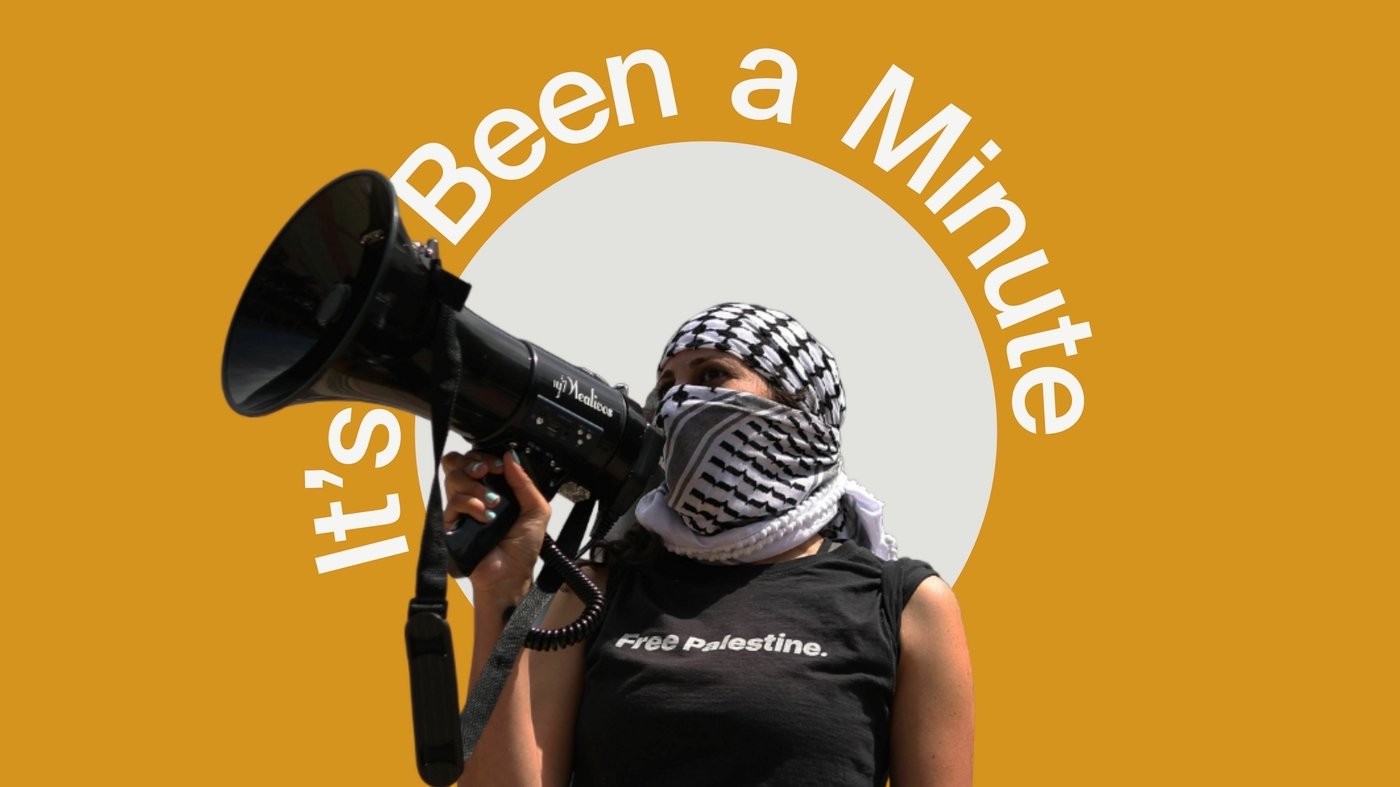
A pro-Palestinian protester uses a bullhorn during a demonstration in front of Sproul Hall on the UC Berkeley campus on April 22, 2024 in Berkeley, California
Justin Sullivan/Getty Images
hide caption
toggle caption
Justin Sullivan/Getty Images

A pro-Palestinian protester uses a bullhorn during a demonstration in front of Sproul Hall on the UC Berkeley campus on April 22, 2024 in Berkeley, California
Justin Sullivan/Getty Images
In anticipation of more pro-Palestinian protests, many college administrators rolled out new rules this fall that include getting pre-approval for posting flyers or hosting demonstrations. Brittany is joined by UC Irvine sociology professor David S. Meyer, who studies social movements and public policy, and Chronicle of Higher Education reporter Kate Hidalgo Bellows. They discuss the changes on campuses and how they tie into debates over free speech.
Then, Brittany kicks off a new series exploring horror tropes. It’s called The Trilogy of Terror. First up: Beelzebub. Brittany invites Travis Stevens and Klaus Yoder, historians and co-hosts of the podcast Seven Heads, Ten Horns: The History of the Devil, to talk about the symbology of the devil and how representations of him in horror movies have changed over time.
This episode was produced by Liam McBain and Alexis Williams, with additional support from Corey Antonio Rose and Barton Girdwood. This episode was edited by Jessica Placzek. Engineering Support came from Carleigh Strange and Simon-Laslo Janssen. Our Executive Producer is Jasmine Romero. Our VP of Programming is Yolanda Sangweni.
Lifestyle
Julia Fox Says She Deeply Regrets Dating Kanye West

Julia Fox says she never should’ve dated Kanye West … calling their brief romance one of the most uncomfortable times of her life.
The dominatrix-turned-actress sat down for an interview with The Times, published early Saturday morning, saying she regrets dating the rap star … claiming she wanted to keep their coupling low-key — but, it went public without her OK.
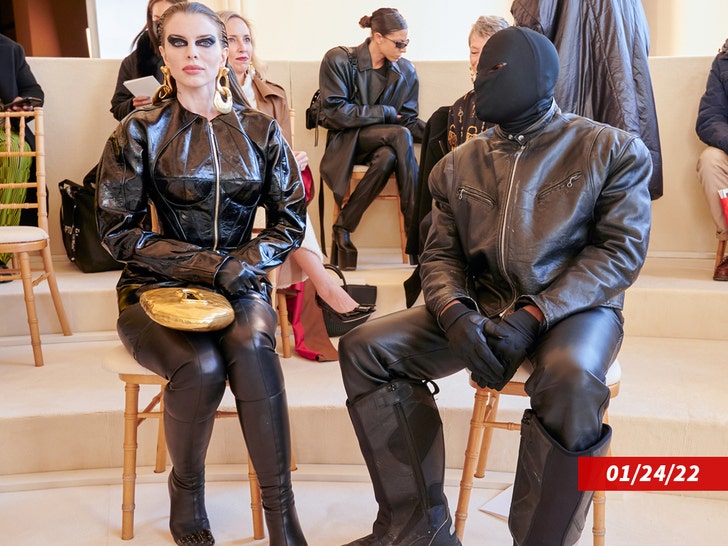
JF says she thinks she was being used as a pawn during their relationship … before confirming Ye’s “the artist” she wrote about in her memoir “Down the Drain” — a person she claims picked out her outfits, offered to pay for a boob job and asked her to sign an NDA.
Fox goes on to say the relationship put her in “the most uncomfortable position in my life and that’s saying a lot. I don’t want to be known for being anyone’s girlfriend.”
Kanye and Julia dated briefly in late 2021/early 2022 … spending just a few weeks together before calling off their relationship.
They did spend some memorable time together … taking on Paris, France in fully leather outfits — though JF later said in her memoir the couple fought pretty much the entire time.
TMZ.com
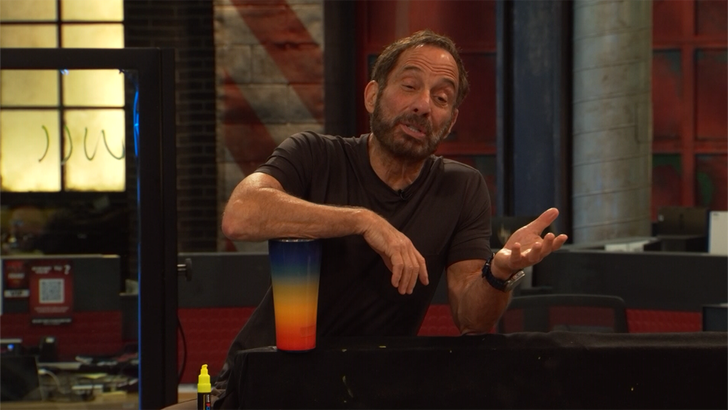
While she dated Ye back in the day, Julia has since come out as a lesbian … revealing the news via TikTok over the summer in a teasing TikTok.
We’ve reached out to Kanye about Julia’s comments … so far, no word back.
-

 World1 week ago
World1 week agoUkrainian stronghold Vuhledar falls to Russian offensive after two years of bombardment
-

 Technology1 week ago
Technology1 week agoBeware of fraudsters posing as government officials trying to steal your cash
-
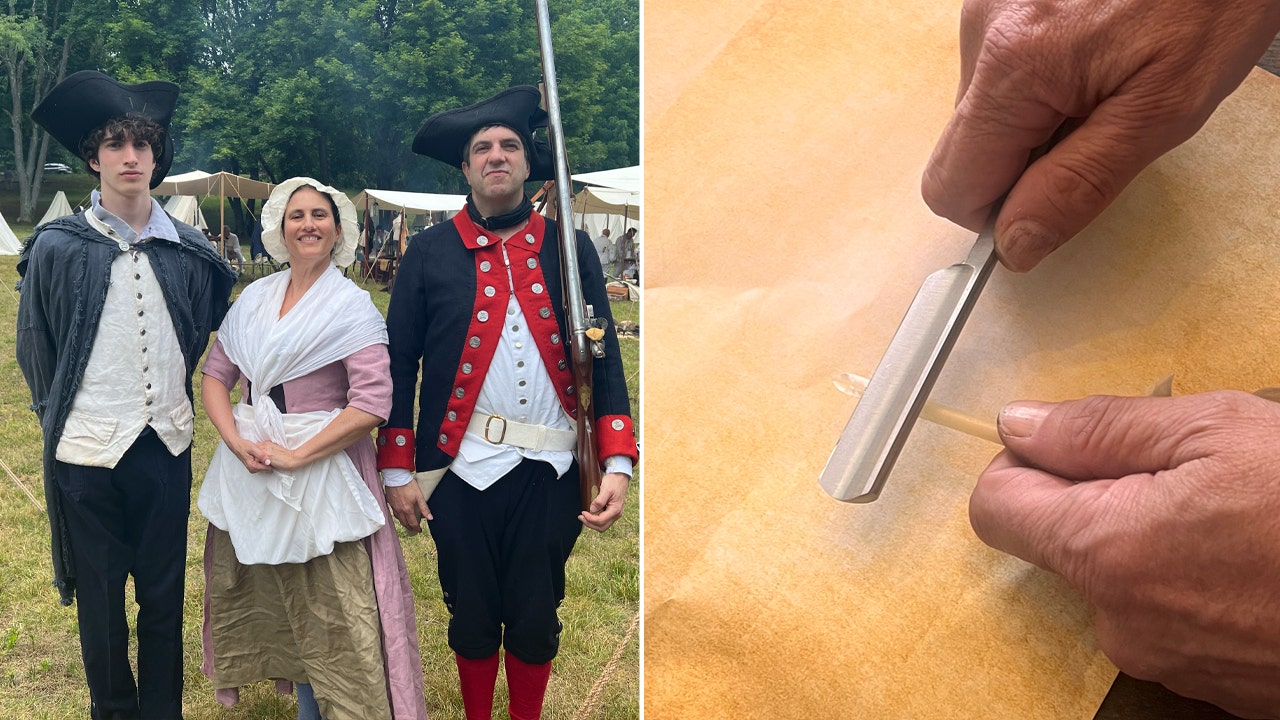
 Health1 week ago
Health1 week agoHealth, happiness and helping others are vital parts of free and responsible society, Founding Fathers taught
-

 Sports1 week ago
Sports1 week agoFreddie Freeman says his ankle sprain is worst injury he's ever tried to play through
-

 News1 week ago
News1 week agoLebanon says 50 medics killed in past three days as Israel extends its bombardment
-
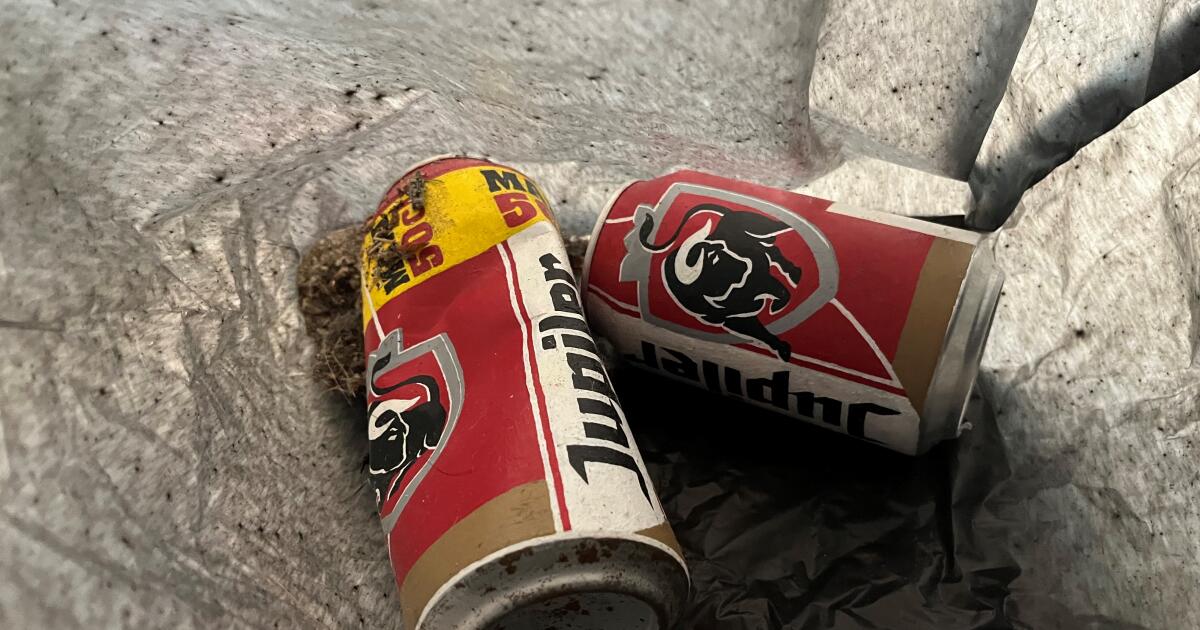
 Entertainment4 days ago
Entertainment4 days agoHold my beer can: Museum says a worker thought unique art installation was trash
-

 Entertainment5 days ago
Entertainment5 days ago'The Office' star Jenna Fischer reveals private breast cancer battle: 'I am cancer free'
-
/cdn.vox-cdn.com/uploads/chorus_asset/file/25673932/462754179_560996103109958_6880455562272353471_n.jpg)
/cdn.vox-cdn.com/uploads/chorus_asset/file/25673932/462754179_560996103109958_6880455562272353471_n.jpg) Technology1 day ago
Technology1 day agoMeta suggests AI Northern Lights pics are as good as the real thing














